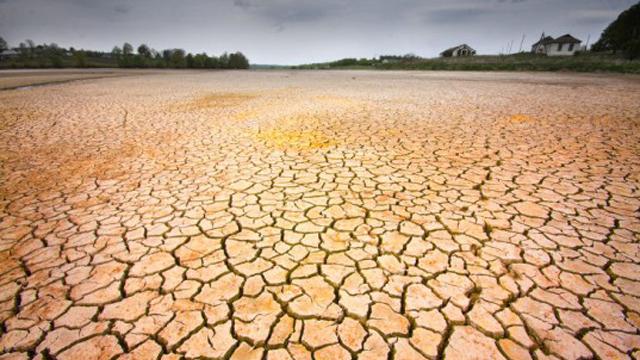
Nearly three-quarters of Americans say global warming influences U.S. weather and made this year's record-hot summer worse, a survey said last week.
Conducted by Yale and George Mason universities, the survey found 74 percent of Americans believe that global warming is affecting weather, up 5 percentage points since March 2012, the last time the two organizations asked these questions.
Seventy-three percent of Americans said global warming made the record-high temperatures of summer 2012 worse, and 61 percent said weather in the United States has been worsening over the past several years, an increase of 9 percentage points since March.
"Extreme weather is clearly having a serious impact on millions of Americans, though the impacts are different in different parts of the country," survey co-investigator Edward Maibach of George Mason University said in a statement.
The survey found most Midwesterners - 71 percent, up 21 points since March - said extreme weather caused more harm to crops over the past few decades. Eighty-three percent said they personally experienced an extreme heat wave, while 81 percent said they had experienced drought in the past year. That was an increase of 55 percentage points from March.
A smaller majority of Southerners - 56 percent - said the weather in their localities has been getting worse over the past few years. Only 40 percent of those in the Northeast said drought has become more common. In the West, 49 percent said extreme weather is causing more forest fires, up seven points since March.
Drought and the Midwest
The dramatic change in attitudes in the Midwest is in line with this year's weather events throughout the central part of the country, where extraordinary summer heat accompanied drought that was the worst in more than half a century.
This year had the hottest first half for the continental United States since record-keeping began in 1895, and July 2012 was the hottest month since the Dust Bowl summer of 1936, the National Oceanic and Atmospheric Administration said.
The survey was conducted from August 31 through September 12, with summer heat and drought fresh in respondents' minds, said Yale's Anthony Leiserowitz, a principal investigator on the project. He acknowledged that a cool autumn and snowy winter might have an impact on future responses.
NOAA data released on Tuesday show that September was warmer than the long-term average in the continental United States, but not extraordinarily so, tying with 1980 for the 23rd warmest September on record.
"We do know that some people will change their views on an issue, on climate change, depending on whether they've just experienced a hot day or a cold day - but I want to underscore that it's just some people," Leiserowitz said in a telephone interview.
Given record-breaking weather over the last two years, he said, some respondents have started "connecting the dots" between extreme events and global warming.
The study was funded by the Surdna Foundation, the 11th Hour Project and the Grantham Foundation.
3 WAYS TO SHOW YOUR SUPPORT
- Log in to post comments















